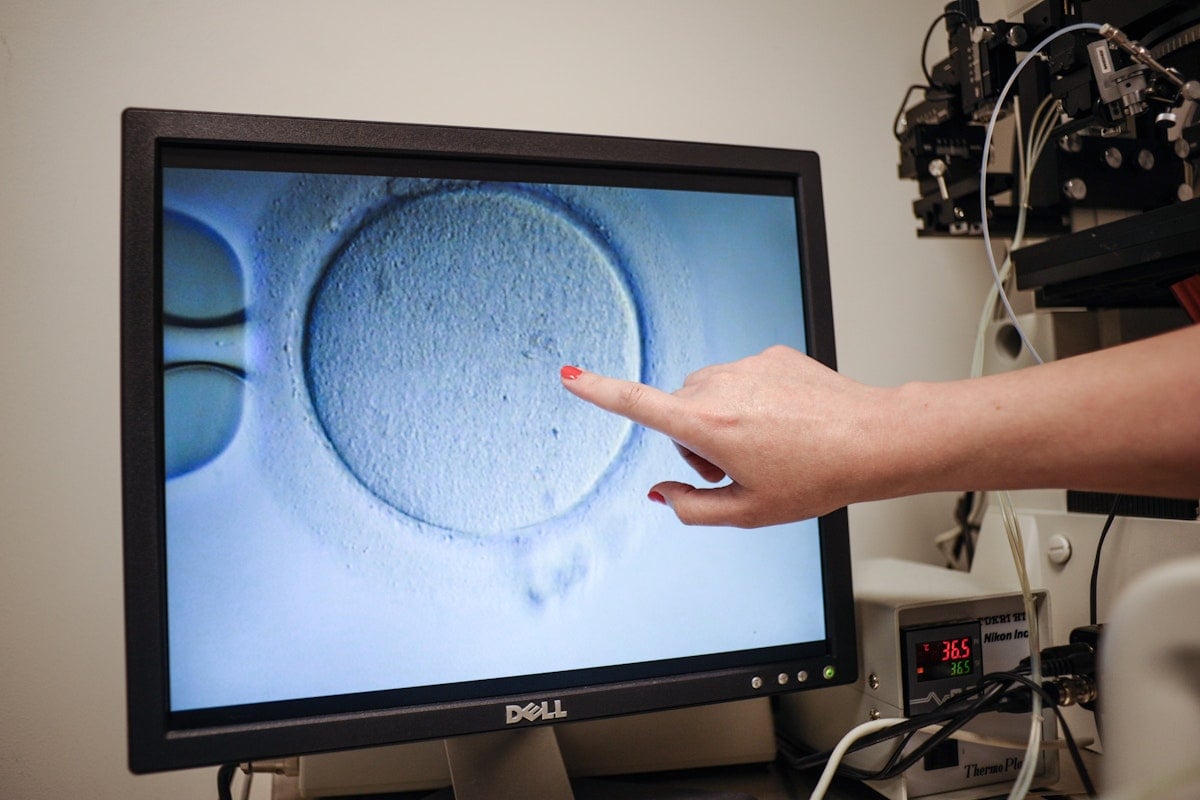In less than a week since the Alabama Supreme Court’s decision categorizing embryos conceived through in vitro fertilization (IVF) as children, the repercussions are already rippling through access to fertility treatments.
The University of Alabama at Birmingham’s (UAB) medical school declared on Wednesday that it is halting IVF treatments to steer clear of potential legal battles following the court ruling. While patients can proceed up to the stage of egg retrieval, the fertilization and embryo development phases are now on pause.
In a statement, UAB spokeswoman Hannah Echols expressed regret over the impact on patients’ efforts to conceive through IVF. However, she underscored the necessity to assess the risk of legal consequences for both patients and physicians if they adhere to the standard protocol for IVF treatments.
The Alabama Supreme Court’s 7-2 ruling last Friday, originating from a lawsuit against a fertility clinic by several parents, deemed embryos created through IVF as protected entities under the Wrongful Death of a Minor Act. The lawsuit was prompted by an incident where an intruder broke into the clinic and caused the destruction of embryos.
Quoting Biblical references, the court’s majority opinion emphasized the sanctity of life from conception, drawing parallels with the prophet Jeremiah’s words.
The Tragic Impact of Alabama Court’s Embryo Ruling Unfolds (Credits: Al Jazeera)
This ruling has stirred emotions and reactions across the nation, with Barbara Collura, President, and CEO of Resolve: The National Infertility Association, expressing dismay over UAB’s decision. She highlighted the emotional and financial investments made by hopeful parents undergoing IVF treatments, now abruptly disrupted by the legal ramifications of the court ruling.
Collura voiced concern that such decisions, along with the broader implications of the Alabama ruling, could reverberate nationwide, impacting individuals seeking fertility treatments and casting shadows over reproductive health practices.
Furthermore, the ruling’s reinforcement of fetal personhood could have profound consequences beyond the fertility industry. Critics argue that this stance, by equating humanity with conception, could lead to legal complications for medical professionals providing crucial care, potentially endangering patients’ lives.
Jessica Valenti, a reporter, pointed out how this ruling could exacerbate the notion of fetal personhood and its potential adverse effects on reproductive health practices statewide. The fear is that by solidifying the legal status of fetuses from conception, it might open the door to penalizing healthcare providers and individuals experiencing miscarriages.
In essence, the Alabama Supreme Court’s decision, while specific to IVF embryos, has ignited a broader debate surrounding reproductive rights and the legal status of unborn entities, with implications reaching far beyond state borders.
